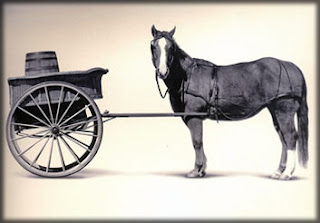What is the best approach towards engaging the agri-food market with new products and services? Are you a developer of a new technology that seeks opportunities, aka problems that your latest creation solves? Or do you recognize this great void in the market that begs a solution you can surely fill by hiring a lot of geniuses?
Logo

Wednesday, December 6, 2017
Tech Driven vs Market Driven Companies
What is the best approach towards engaging the agri-food market with new products and services? Are you a developer of a new technology that seeks opportunities, aka problems that your latest creation solves? Or do you recognize this great void in the market that begs a solution you can surely fill by hiring a lot of geniuses?
Techies Rule
The “geeks” of the world, and I use this term endearingly,
will tell you that the first method of market engagement is far superior to the
MBA
way. There are many companies that have had great success creating software,
hardware, services, systems and devices and then finding the nail that fits
their hammer. On the other hand the road to riches is littered with innovative
technology that could not gain acceptance by potential customers with a very clear
and well-defined need.
PowerPoints and Business Plans
Taking the business route might seem to be a more prudent
way to succeed in the market. Unfortunately, the development of a detailed
business plan does not insure that those “hockey stick” sales forecasts will be
achieved. This is not to say that one shouldn’t have a plan but sometimes all
of that market research, positioning, pricing, messaging, profiling and needs
analysis may not be enough to get that startup across the finish line.
Examples of The Tech First Approach
Two companies, Iteris and Descartes Labs, have some very
similar beginnings when it comes to launching their businesses. One introduced
and subsequently proved the value of their technologies in other non ag market
sectors with a bona fide solution to a well-defined problem. The other leveraged their public sector knowledge and technology for use in the forecasting of commodity yields. Each had their
beginnings as a collection of some very smart people who had done the heavy
lifting technically and found customers who, for the most part, recognized the
ROI of those offerings very quickly.
Iteris
Iteris launched their business by solving the problems of
logistics and traffic flow optimization for municipalities as well as for private
industry. Understanding the science of big data analysis provided them with the
wherewithal to leverage that knowledge into ag and food. The term they use is
“informatics” or informed decision-making.
Descartes Labs
Descartes Labs was founded by a group of astrophysicists,
cosmologists and big data analysts out of the prestigious Los Alamos National Laboratory who had a
sense that their skills and knowledge would deliver value to a myriad of business
inefficiencies that could be solved geospatially.
Innovative Technology + Business Plan + Capital + Leadership
= Success
Let’s just say that with any one or two or even three of the
above companies will not get to the equals goal. It seems that by putting tech first and
building a business around that might be the best path towards success. The smart money is on "the geeks". Sales & Marketing and Vice Versa
How We View Ourselves is Who We Are
A friend and I have had a long running discussion about the way
that many companies have departmentalized the functions of “sales and marketing”.
First of all it seems that many agri-food technology
startups put them in the same box on the org chart. While it might seem logical
due to a perceived inherent close relationship between the two, upon further
inspection these distinct disciplines are as different as software development
and accounting. Which begs the question why any organization would have IT coupled
with accounting – which some do. But that is a different discussion entirely.
Looking at the functions of each one sees that while they
are tasked with the ultimate goal of moving product or services to the intended
market their methods for doing so are not in the least way related.
There is a Difference
Marketing, and I am going to simplify here, is all about
product definition, perception, branding, pricing, positioning, messaging, promoting and all of that
other stuff that goes into laying the foundation for the sales staff as a means
to assist in the adoption process.
Sales is the act of converting a prospect into a customer by
having those people or organizations exchange money for those products and
services. OK. I have really oversimplified that one!
It is very difficult to have one without the other. Salespeople
are not good marketers and we all know that marketers can be lousy salespeople.
We need the unique expertise and talents of each in order to be successful in
the agri-food technology market segment.
Carts and Horses
Secondly, a common error in establishing the department name
is when companies assign the name as “Sales and Marketing”. Combining them is
the first mistake but when we don’t lead
with marketing in order to support sales and not the other way around we have
missed a key step towards success. It may seem trivial but by transposing these
activities we fail to recognize the true nature of the challenge in engaging the market.
In any business planning process one cannot possibly
establish sales projections without conducting the necessary market research
first. Market size, demographics, customer profiling, value propositions,
pricing, SWAT analysis and all the other things that marketing provides the
sales group are what position them for success.
Subscribe to:
Posts (Atom)



